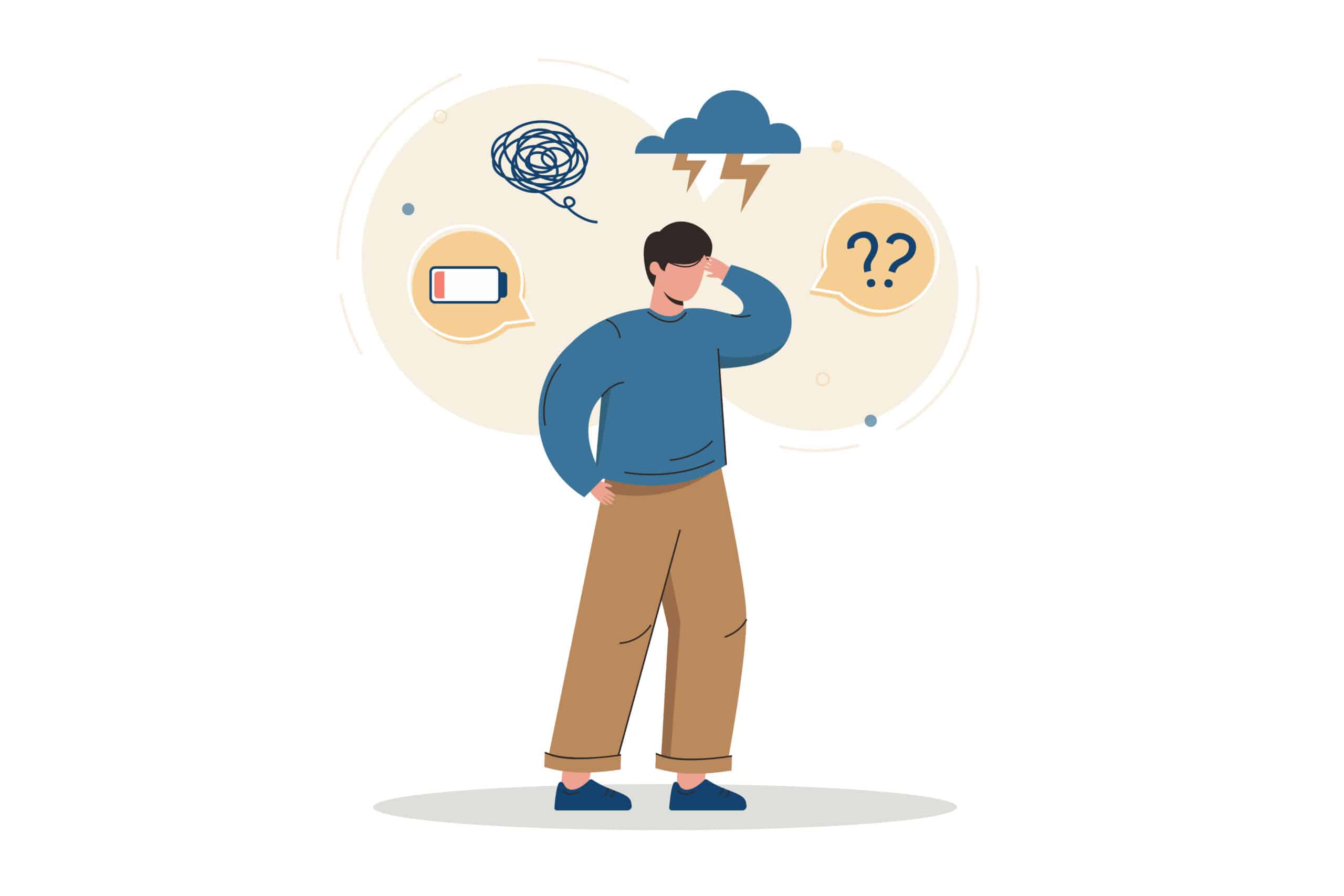Key Takeaways
-
Start with the Right Dosing: Begin with a low L-Theanine dosage, around 100-200mg, and gradually increase as needed, up to 400mg per day for treatment.
-
Combine L-Theanine with GABA-supportive nutrients like magnesium, vitamin B6, and dietary supplements for enhanced anxiety management.
-
Consider Holistic Benefits: Recognize the broader benefits of L-Theanine supplementation, such as improved mental health, cognitive function, and brain activity.
-
Be Mindful of Potential Side Effects: While generally safe, be aware of potential side effects, consult a healthcare professional if you experience any adverse reactions, and patients on antipsychotic medication should be cautious.
-
Seek Professional Guidance: Prioritize consulting a healthcare provider before starting L-theanine supplementation, especially if you have existing health conditions or are taking other medications.
-
Reflect on Comprehensive Impact: Understand the comprehensive impact of L-Theanine supplementation on mental health, cognitive functions, and overall well-being beyond anxiety relief.
Anxiety disorders affect over 40 million adults in the United States alone. Amidst the quest for effective anxiety relief, l-theanine has emerged as a potential natural remedy. L-theanine is a thing in tea that can help reduce stress and anxiety. Lots of people are using it to manage their anxiety instead of or along with other treatments. In this post, we’ll talk about how much l-theanine you should take for anxiety and what research and users say about it.
Understanding L-Theanine’s Role in Anxiety Management
Calming Effects

L-theanine dosage for anxiety is known to promote relaxation without causing drowsiness. This compound, primarily found in tea leaves, has been studied extensively for its calming effects on the brain. It increases alpha brain wave activity, which is associated with wakeful relaxation.
L-theanine may help reduce the perception of stress and anxiety in a controlled study. When consumed in appropriate dosages, it can potentially modulate neurotransmitters in the brain, such as dopamine and serotonin, which play crucial roles in regulating mood and emotion. By doing so, l-theanine contributes to a sense of calmness and well-being.
Recommended Dosage
The recommended l-theanine dosage for anxiety typically ranges from 200-400mg per day. However, individual responses to the effect of l-theanine may vary based on factors like body weight and sensitivity to supplements. It’s important to start with a lower mg dose and gradually increase it if necessary.
When considering l-theanine supplements for anxiety relief, it’s essential to consult a healthcare professional or a qualified practitioner who can provide personalized guidance based on individual needs. They can offer tailored recommendations regarding the appropriate dosage based on specific symptoms and overall health status.
Recommended Dosage of L-Theanine for Anxiety
Starting with a Lower Dose
Starting with a lower dose is crucial, typically around 100-200mg daily. This allows individuals to gauge their body’s response and tolerance to the supplement. Starting low (mg) can prevent adverse reactions, and gradually increase the dose if needed.
It’s important not to exceed the recommended daily l-theanine intake without consulting a healthcare professional. While some people may benefit from higher doses up to 400mg per day, others might find relief with smaller amounts. The key is to pay attention to how your body responds and adjust the dosage accordingly.
It’s important to talk to a doctor to figure out how much l-theanine to take for anxiety. They can advise based on your health, meds, and what you want to achieve. They’ll also think about things like caffeine and other pills that might affect l-theanine.
Adjusting Based on Response
Individuals should monitor their response after starting an l-theanine regimen for anxiety management. Adjusting the dose may be necessary if they experience little improvement or no change in symptoms. On the other hand, if someone notices significant relief from anxiety at a lower dose, there might be no need to increase it further.
How L-Theanine Interacts with GABA to Reduce Anxiety
L-Theanine and GABA Interaction
L-theanine dosage for anxiety is effective because l-theanine increases the levels of GABA, a calming neurotransmitter in the brain. This interaction contributes significantly to its ability to reduce anxiety. When GABA levels are increased, it helps to promote relaxation and reduce stress and anxiety.
The increase in GABA levels due to l-theanine intake has been linked to its anxiolytic effects, making it a popular natural remedy for individuals dealing with anxiety-related issues. By enhancing the production of this calming neurotransmitter, l-theanine can help alleviate symptoms associated with stress and nervousness.
Targeting GABA Receptors
Anxiety meds work by boosting GABA in the brain, which calms you down. L-theanine does the same without making you sleepy or messing with your thinking.
-
Increased GABA: L-theanine raises GABA levels, promoting relaxation.
-
Anxiolytic Effects: The interaction between l-theanine and GABA reduces symptoms related to stress and nervousness.
-
Similar Mechanism: Anti-anxiety medications also target GABA receptors for their calming effects.
Best Practices for Supplementing L-Theanine with Other Nutrients
Magnesium Combination
When considering theanine supplementation for anxiety, combining it with magnesium (mg) can enhance relaxation. Magnesium (mg) is known to have calming effects on the brain and body, making it an ideal companion to theanine. Look for supplements that contain both amino acids to maximize their synergistic benefits.
Combining L-theanine with magnesium (mg) can create a more comprehensive approach to promoting relaxation and reducing anxiety symptoms. For example, a supplement containing both ingredients may offer a balanced blend of calming properties that target different mechanisms in the body, providing more holistic support.
Caffeine Consideration

Avoid excessive caffeine intake when using theanine supplements. While some people enjoy consuming caffeine alongside L-theanine due to its potential ability to counteract its jittery effects, excessive caffeine consumption can negate its calming benefits. It’s important to strike a balance and not overwhelm the system with too much stimulation.
It’s essential to be mindful of your overall caffeine intake when supplementing with L-Theanine, as this will impact its effectiveness in managing anxiety symptoms. Opting for decaffeinated or low-caffeine versions of beverages while using L-theanine supplements can help maintain equilibrium in the body without interfering with its intended effects.
Comprehensive Supplements
Look for comprehensive supplements that include complementary nutrients along with L-theanine. Combining nutrients such as B vitamins, chamomile extract, or lemon balm extract can further support relaxation and stress reduction beyond what L-Theanine alone provides.
Choosing a supplement that includes theanine supplementation alongside multiple relaxing ingredients offers a multi-faceted approach to addressing anxiety symptoms by targeting different pathways in the body simultaneously.
Exploring the Broad Benefits of L-Theanine Beyond Anxiety
Cognitive Function and Focus
L-theanine, found in tea, can enhance focus and cognitive function. It promotes a calm yet alert state, beneficial for tasks requiring sustained attention. For example, students studying for exams or professionals working on important projects may find it helpful to view.
Furthermore, when combined with caffeine, l-theanine can mitigate the jittery effects of caffeine while enhancing its positive impact on focus and attention. This combination is commonly found in green tea and has been shown to improve cognitive performance.
Antioxidant Properties
Beyond its role in anxiety management, l-theanine may also possess antioxidant properties that contribute to overall health. Antioxidants help protect the body from damage caused by harmful molecules called free radicals. By neutralizing these free radicals, antioxidants support various bodily functions and promote general well-being.
Research indicates that l-theanine’s antioxidant effects could benefit individuals dealing with stressful situations or those looking to bolster their immune systems against external threats.
Recognizing Side Effects and Safety Concerns of L-Theanine
Minimal Side Effects
L-Theanine is known for its minimal side effects. Most individuals tolerate it well without experiencing any adverse reactions. This means that the likelihood of encountering negative effects is low when taken at the recommended dosage.
The few reported side effects are typically mild and may include dizziness or gastrointestinal discomfort. These occurrences are rare and often resolve independently as the body adjusts to the supplement.
Adhering to Recommended Dosages
To ensure safety, it’s crucial to adhere to the recommended dosages of l-theanine. Consuming excessive amounts can lead to adverse events, which may outweigh the potential benefits. Therefore, following guidelines provided by healthcare professionals or product labels is essential in preventing severe side effects.
Users need to understand that while l-theanine offers various benefits, such as anxiety relief, consuming it in excessive amounts doesn’t necessarily equate to better results. Instead, sticking within safe dosage ranges helps mitigate potential risks associated with its use.
L-Theanine’s Impact on Mental Health and Cognitive Functions
Potential Benefits
Research shows that L-theanine can help your brain work better and improve your feelings. It might help you focus, think clearly, and stay alert. It could also make you feel more awake and sleep better. L-theanine is a good choice for people who want to boost their brain power naturally.
L-Theanine’s effects extend beyond immediate cognitive benefits; it may also possess neuroprotective properties against age-related decline. This means that regular consumption of l-theanine could help protect the brain from some aging effects, supporting long-term cognitive health.
Complementing Traditional Treatments
Moreover, research indicates that l-theanine could complement traditional treatments for mental health conditions such as depressive disorder or schizoaffective disorder. For instance, when used alongside antipsychotic medication, l-theanine might offer additional support in managing symptoms by promoting relaxation without sedation.
Additional Health Benefits: Cardiovascular, Immune, and Liver Protection
Cardiovascular Benefits
Some early studies suggest that L-Theanine might be good for your heart. It’s a natural compound in some foods and could help protect your heart. L-Theanine can help you relax without making you sleepy, which might help with stress and keep your blood pressure healthy. It also makes your blood vessels work better, which is important for your heart.
Some evidence suggests that L-Theanine could also support the immune system. Research indicates this dietary supplement may enhance the body’s defense mechanisms by acting on various immune cells. For instance, L-Theanine has shown promise in promoting the activity of natural killer cells and supporting their antitumor activity.
Liver Protection Properties
Furthermore, animal studies have demonstrated liver protection properties associated with L-Theanine consumption. These findings suggest that this natural compound might play a role in safeguarding liver health by reducing oxidative stress and inflammation within the liver tissue.
Final Thoughts on L-Theanine Dosage for Anxiety
So, there you have it! Finding the right dosage of L-theanine can make a world of difference. Remember, it’s not just about popping a pill and hoping for the best. Understanding how L-theanine works, its interactions with neurotransmitters like GABA, and the potential side effects is crucial for making informed decisions about your anxiety relief journey.
Now that you’re armed with the knowledge about L-theanine and its dosage for anxiety take the next step to consult with a healthcare professional. They can provide personalized recommendations based on your unique needs and health conditions. Don’t hesitate to explore the potential benefits of L-theanine in managing anxiety, but always prioritize safety and expert guidance along the way.
Frequently Asked Questions
How does L-Theanine help with anxiety relief?
L-theanine promotes relaxation by increasing alpha brain wave activity, which can reduce stress and anxiety. It also enhances the production of calming neurotransmitters like GABA, serotonin, and dopamine.
What is the recommended dosage of L-theanine for anxiety?
The typical dosage ranges from 100-400mg per day for anxiety relief. It’s advisable to start with a lower dose and gradually increase it while monitoring your body’s response.
Are there any side effects or safety concerns associated with L-Theanine?
L-Theanine is generally well-tolerated, but some individuals may experience mild side effects such as headaches or stomach upset. It’s important to consult a healthcare professional before using L-Theanine, especially if you have underlying health conditions or are taking medications.
Can I combine L-Theanine with other nutrients for better results in managing anxiety?
Combining L-Theanine with other nutrients like magnesium or B-vitamins can enhance its anxiolytic effects. However, seeking guidance from a healthcare provider to ensure safe and effective nutrient combinations tailored to your specific needs is essential.
Does L-Theanine offer benefits beyond anxiety relief?
Yes, besides reducing anxiety symptoms, L-theanine has been linked to various other health benefits, including improved cognitive function, cardiovascular support, immune system modulation, and liver protection.

